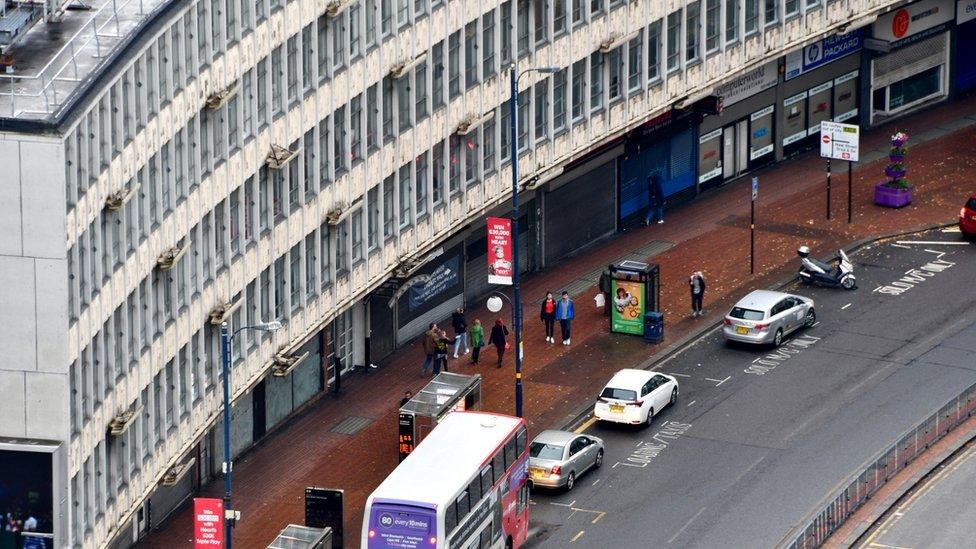Legal bid to save 'irreplaceable' Brutalist Brum
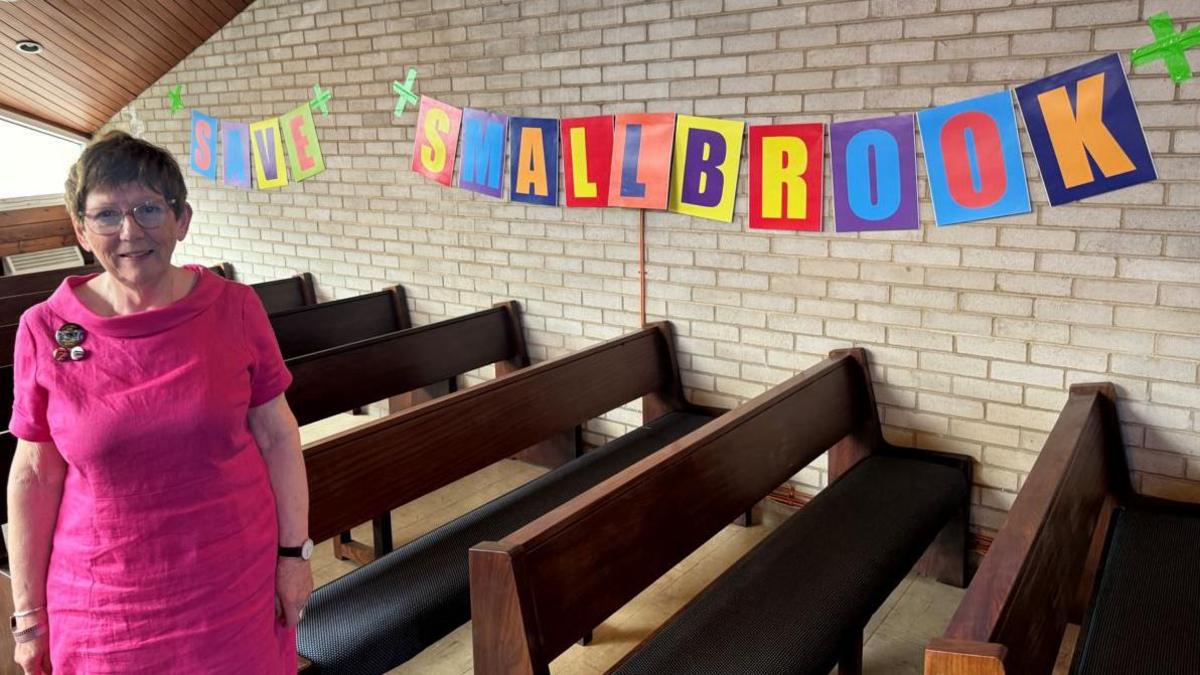
"It's so Birmingham," campaigner Mary Keating said of Smallbrook's Ringway Centre
- Published
Campaigners applying for a judicial review in a bid to stop a distinctive 1960s office block from being demolished have described it "as an irreplaceable piece of Birmingham history".
The Ringway Centre on Smallbrook Queensway is set to be knocked down to make way for three residential apartment blocks.
But the Save Smallbrook coalition wants the building to be retained and repurposed, recently launching a crowdfund campaign to pay for the legal challenge.
Birmingham City Council, which approved the residential scheme, has been approached for comment.
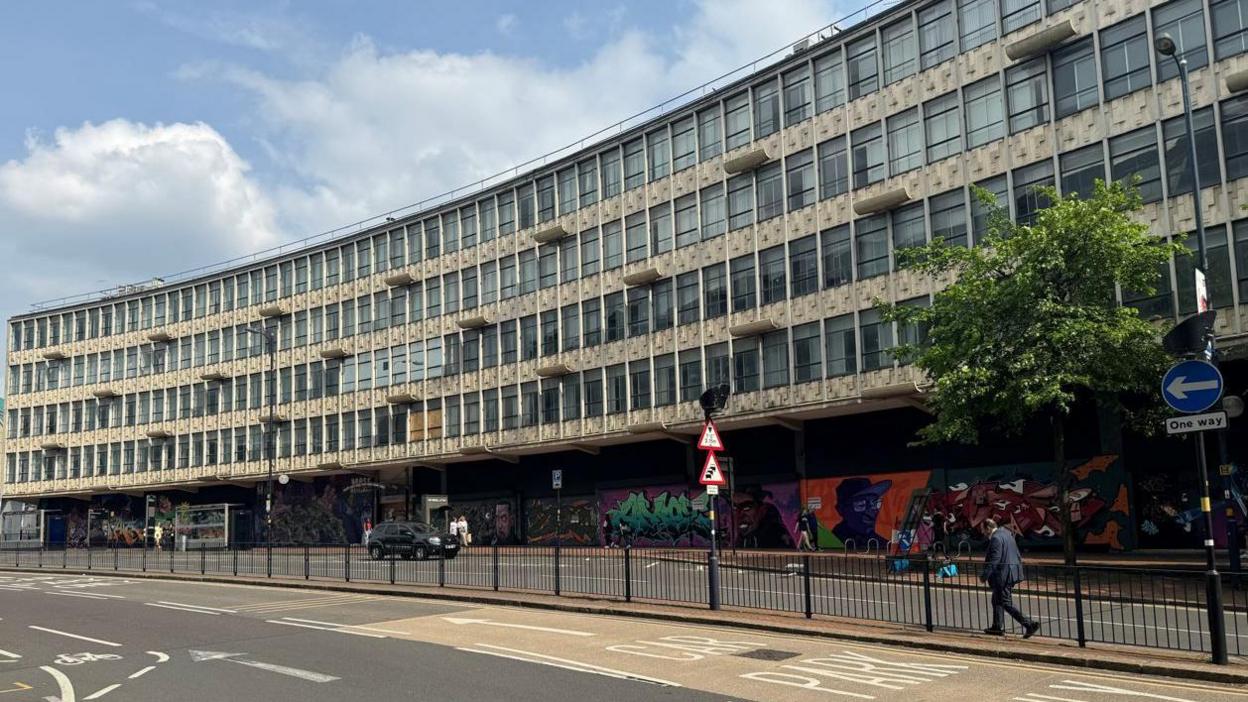
Three apartment blocks with one, two and three-bedroom homes are set to replace the Brutalist building
The curved, six-storey Brutalist office block was designed by James Roberts, known for creating The Rotunda on New Street.
Saving Smallbrook, external, a 30-minute film on the building and the campaign to save it, premiered at the Bethel Presbyterian Church in the city centre during Birmingham's Flatpack Film Festival on Saturday.
Mary Keating, of Brutiful Birmingham - a group celebrating the city's mid-20th Century Brutalist buildings - called the film a "tear-jerker".
“People who live in Birmingham need to be approached, they need to have a discussion about what they want their city to look like, and do they want their city to just be hundreds of tower blocks?" she said. “It’ll just be another Dubai."
TV presenter Kevin McCloud, who fronts architectural design programmes, had also lent his support to the campaign, she added.
Developers want to replace the building with three apartment blocks featuring one, two and three-bedroom homes in efforts to "revitalise the area".
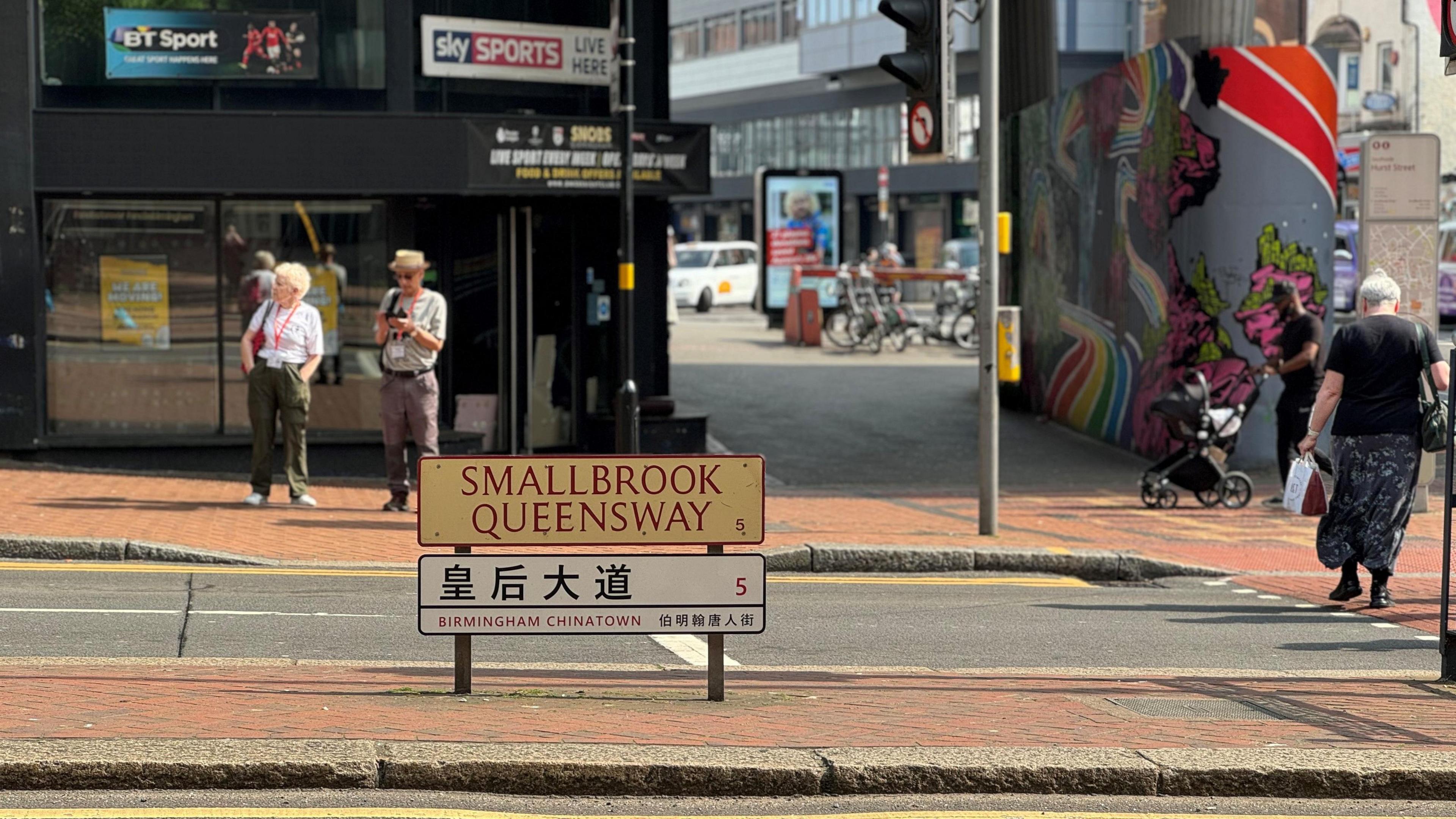
Built in the 1960s, the office block on Smallbrook Queensway now lies empty
The Save Smallbrook movement, which consists of organisations such as Birmingham Modernist Society alongside Brutiful Birmingham, lodged an application for a judicial review at the High Court on 2 May, challenging the city council's backing of demolition in February.
“It’s so Birmingham,” Ms Keating said of the Ringway Centre. “You don’t have to love it, this is actually just an important Birmingham building."
The group has so far crowdfunded more than £2,500 of the £15,000 target.
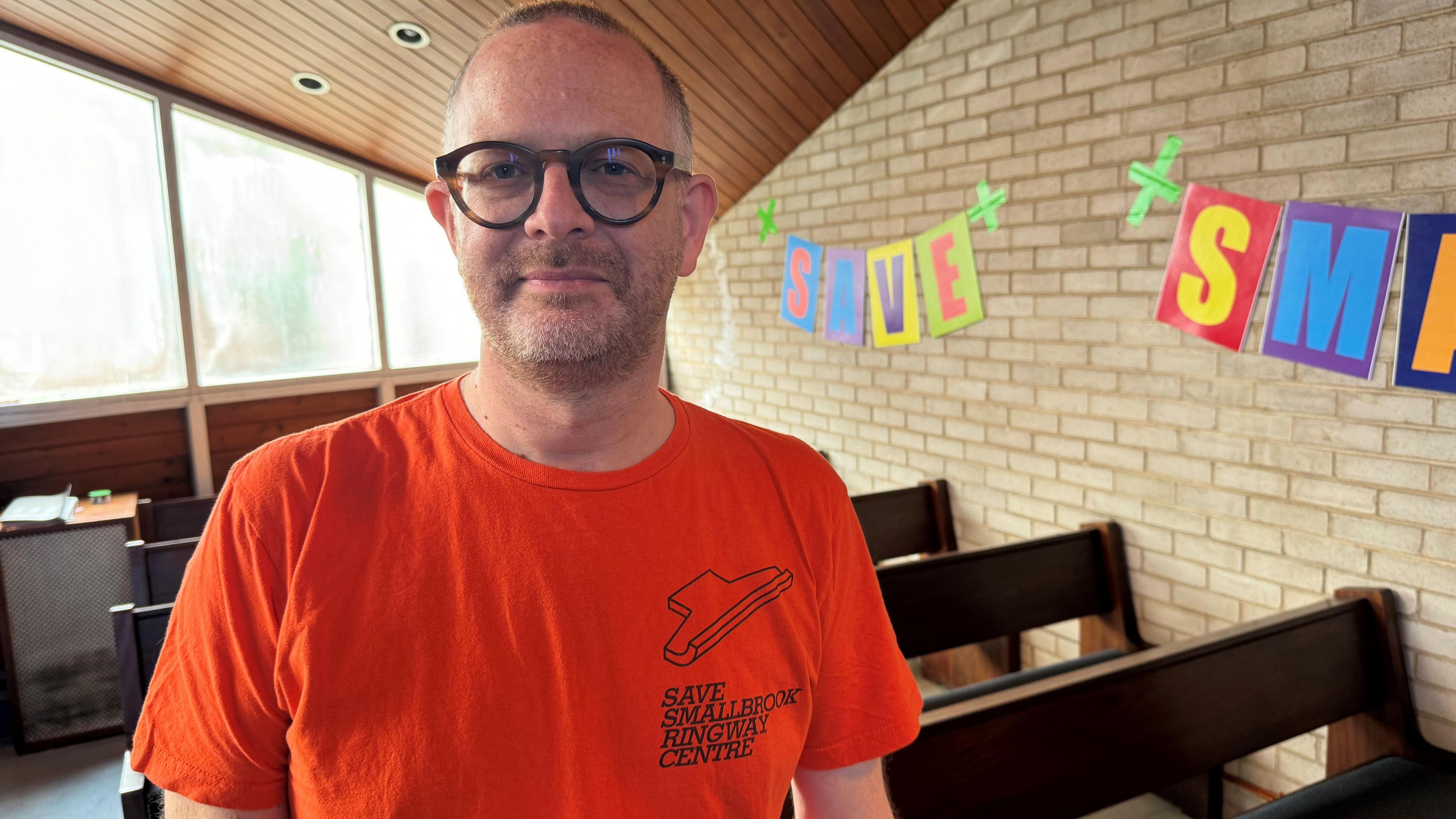
Dr Michael Dring has suggested a counter-proposal
Dr Michael Dring, a lecturer in architecture at Birmingham City University, said Save Smallbrook believed the building could be retained for a "mixture of uses".
He said a counter-proposal to the agreed development would see the building retrofitted, keeping the existing structure and reanimating the ground floors with retail units.
“The Smallbrook Ringway Centre is under threat of demolition and it is to be replaced by three large residential towers up to 54 storeys tall," Dr Dring explained.
He said he hoped the film would bring more awareness of "what it takes to actually fight for heritage of whatever type".
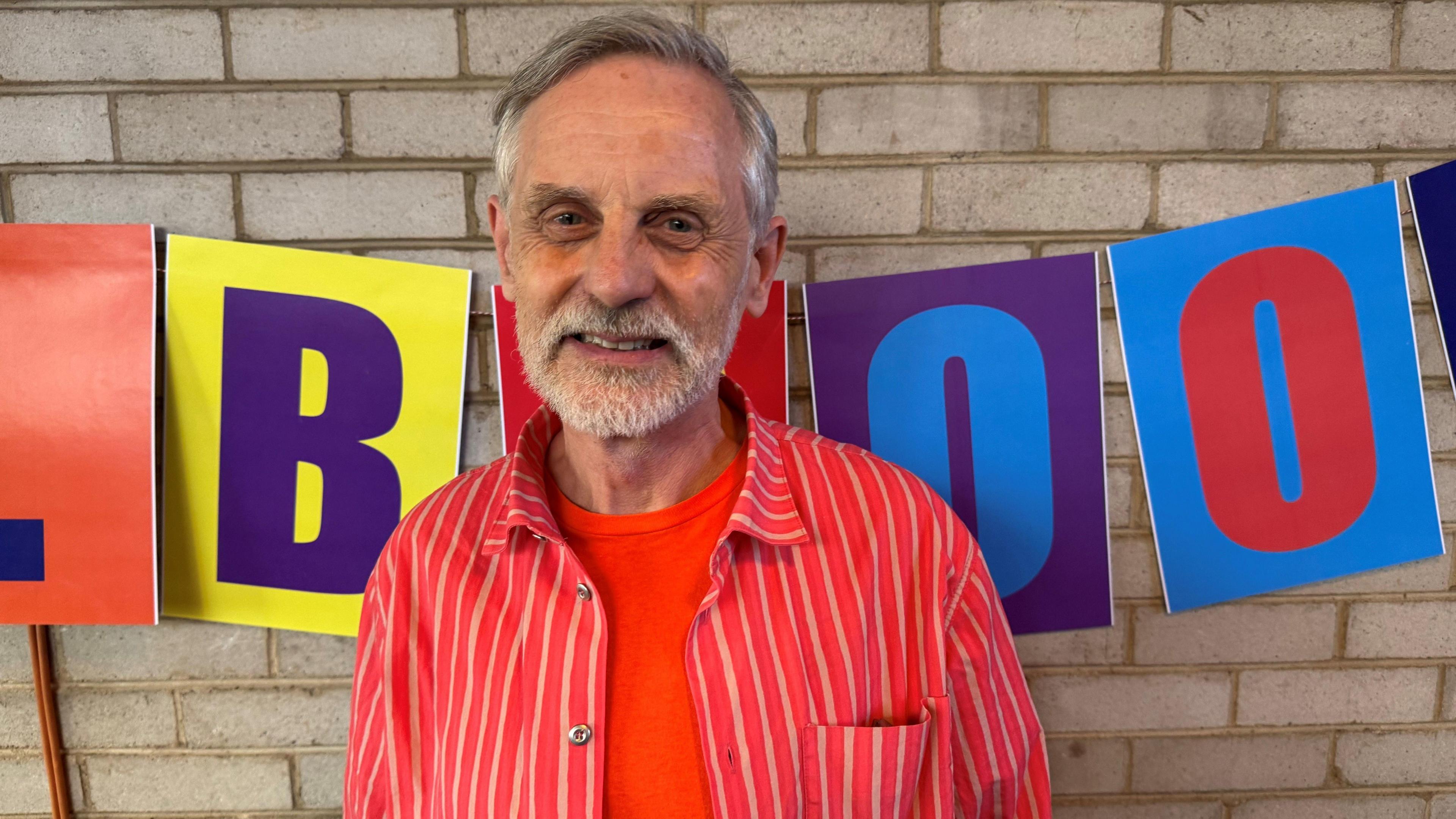
John Christophers said campaigners wanted the building to be "rejuvenated"
John Christophers, an architect, told the BBC he did not want the city "to continually be a building site forever" and wished to see its heritage and culture protected.
Mr Christophers, who in Birmingham delivered what is said to be the UK's first zero-carbon retrofitted home, said: “I sense we’re at a moment in Birmingham’s history where a lot of people are feeling enough is enough.
“If we just rip down everything and we put up the tallest skyscrapers that we can, then we would have destroyed our city.
[The Ringway Centre} is an irreplaceable piece of Birmingham history."
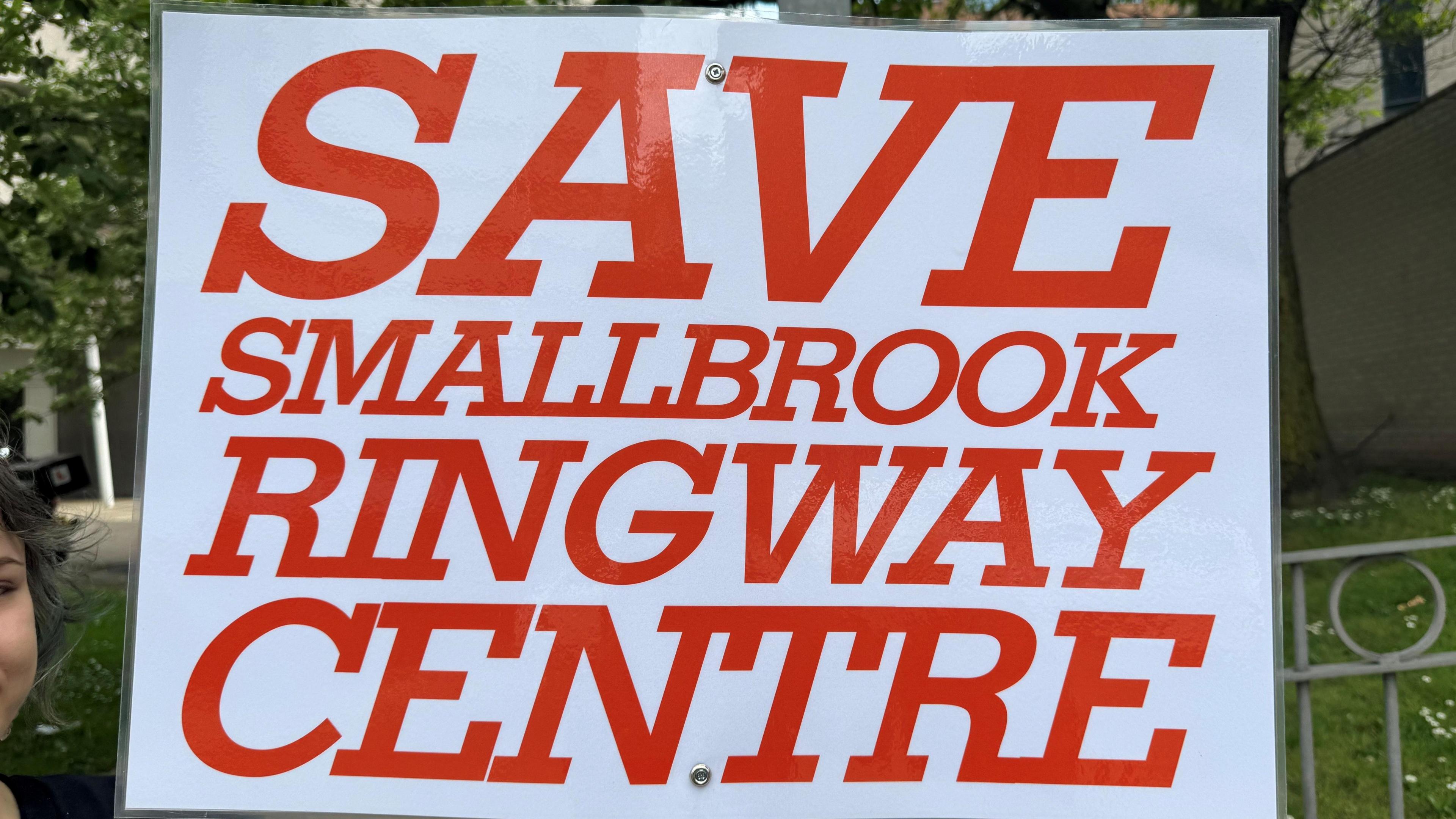
The Save Smallbrook group wants the existing building to be retained and repurposed
Follow BBC West Midlands on Facebook, external, X,, external and Instagram, external, Send your story ideas to: newsonline.westmidlands@bbc.co.uk, external
Related topics
- Published10 May 2024
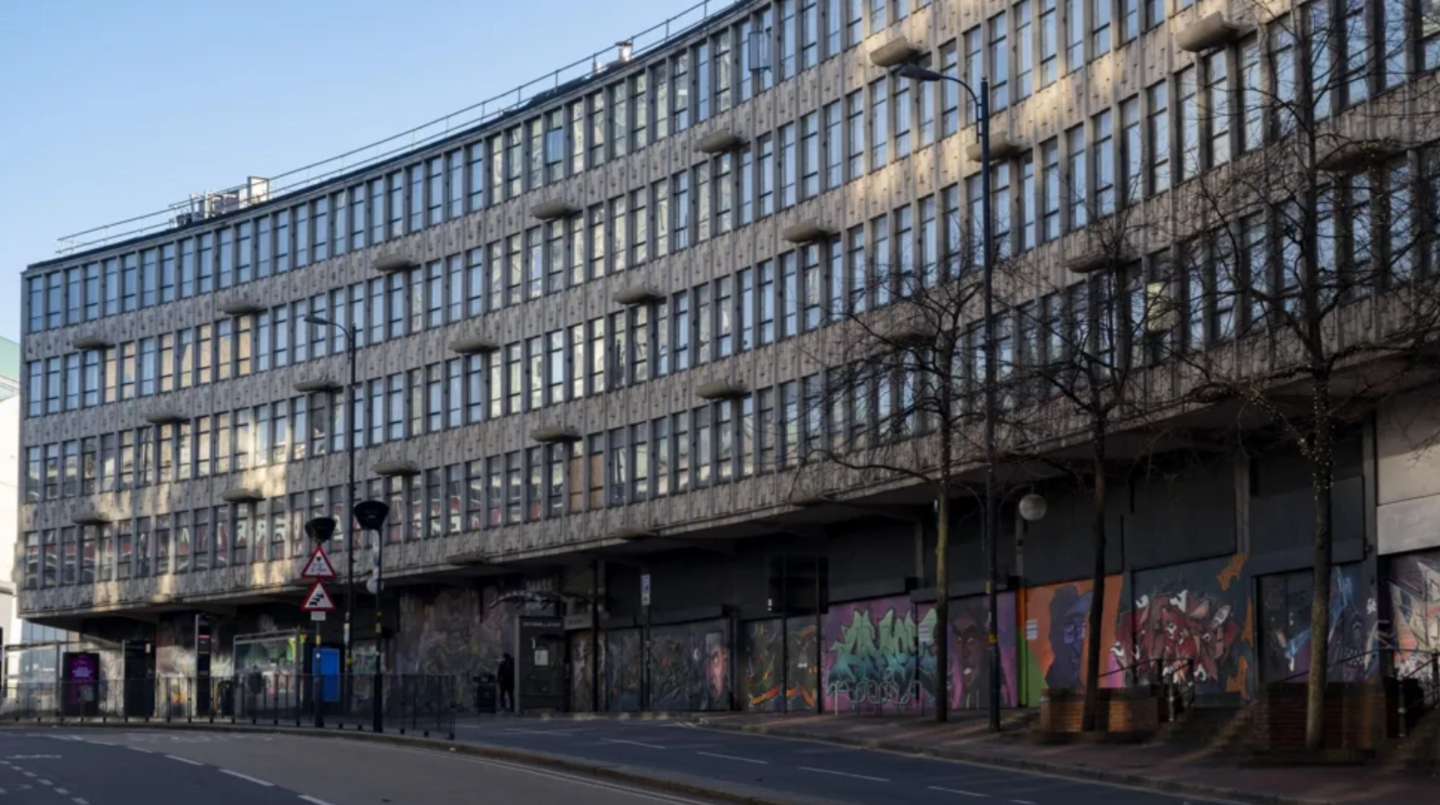
- Published1 February 2024
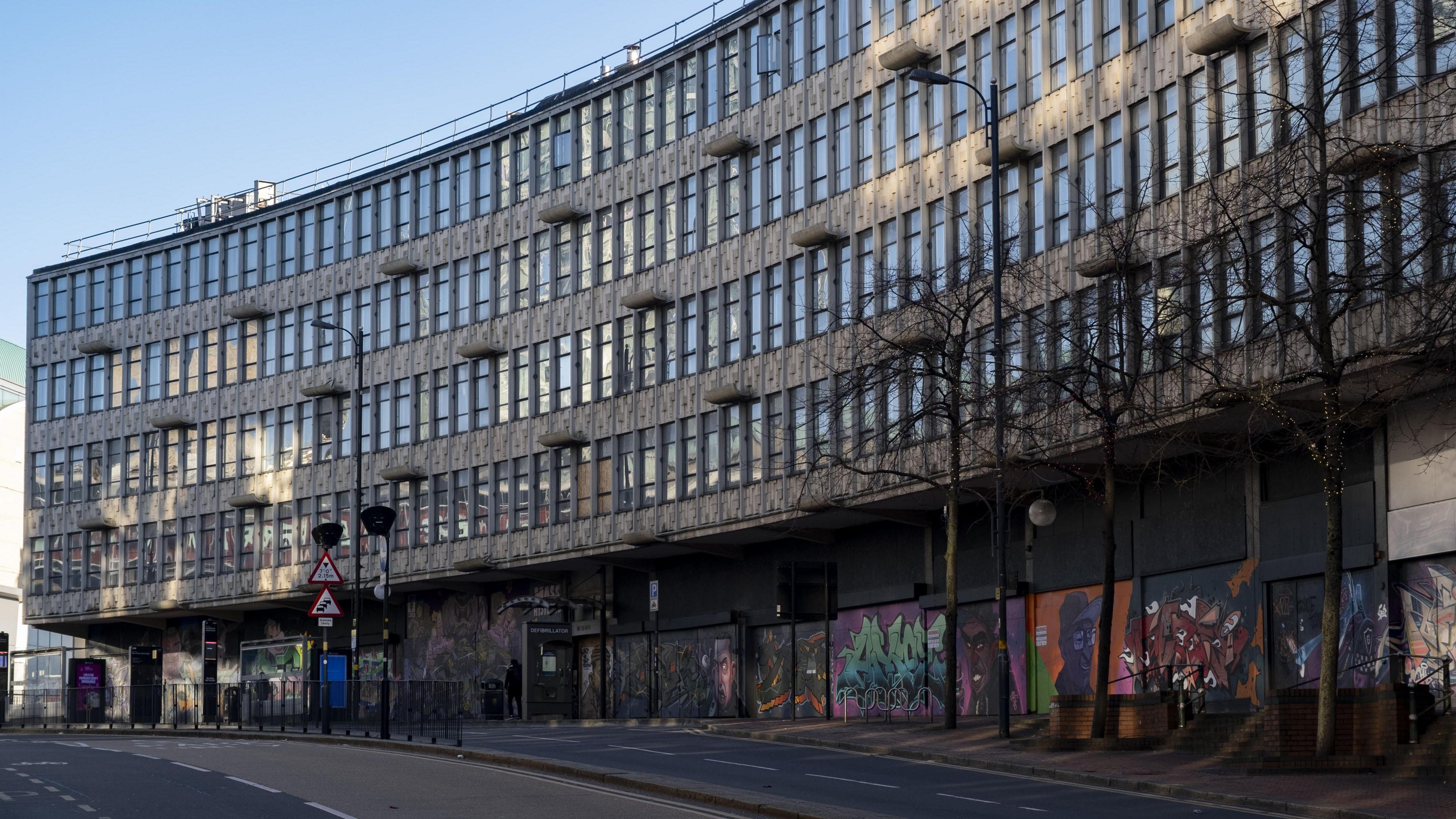
- Published27 December 2023

- Published27 February 2023

- Published28 September 2023
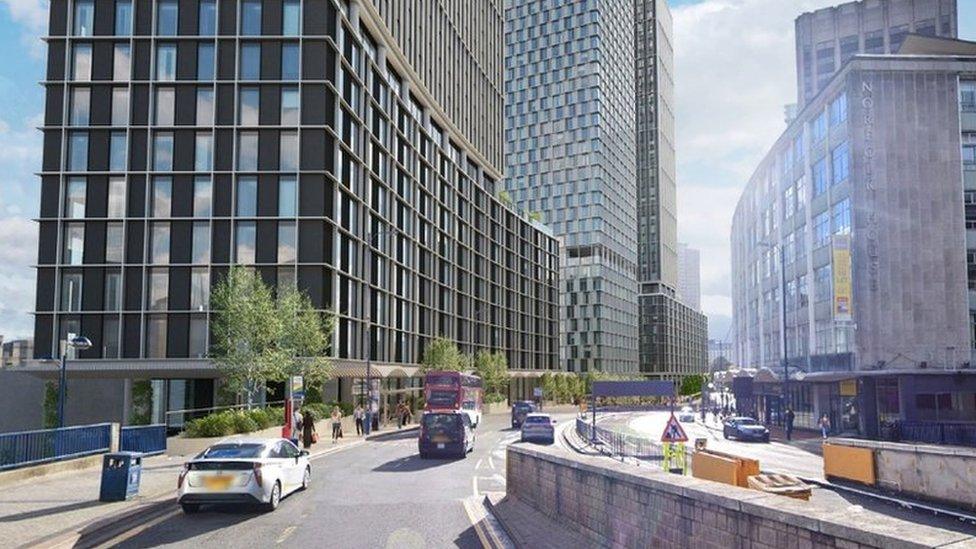
- Published9 December 2022
